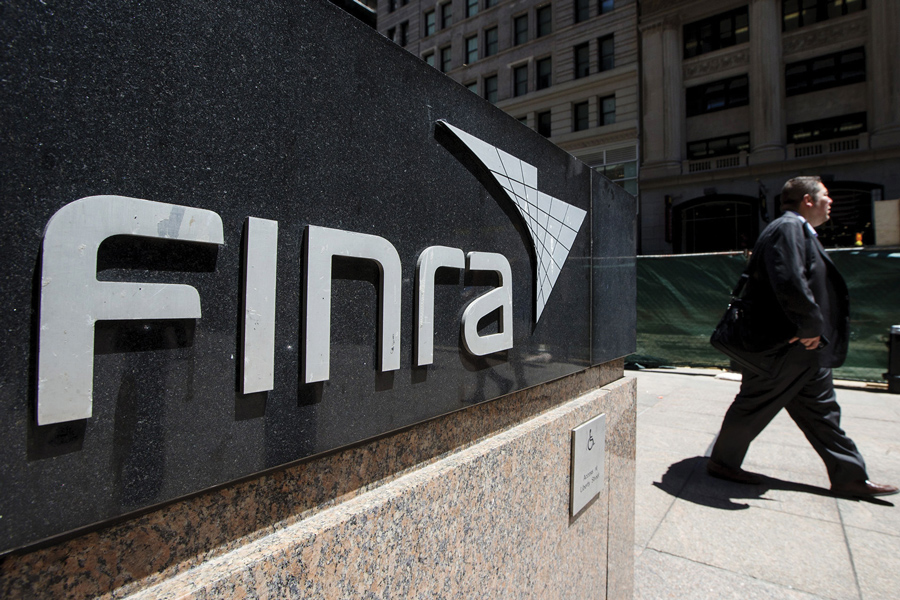

A new Finra rule would give investors pursuing an arbitration claim against a brokerage more latitude if the firm goes out of business during the proceeding, a change that could help investors eventually obtain an award.
In a regulatory notice posted last week, the Financial Industry Regulatory Authority Inc. said it has amended its arbitration code to allow investors to withdraw a claim already filed against a brokerage or a firm associate if the firm or associate becomes inactive.
Under the rule, a customer can add a new party to the claim without prior approval of the arbitration panel or postpone a scheduled hearing after Finra has notified the customer about the firm or associated person relinquishing Finra membership.
Customers would be allowed to leave arbitration and request a default proceeding or pursue a court claim against the inactive firm or its personnel if they believe they have a better chance of obtaining an award in court. They could make such a move despite the mandatory arbitration agreements included in brokerage contracts.
The rule was approved by the Securities and Exchange Commission and goes into effect on June 29.
The new rule could help address Finra’s ongoing problem of brokerages shirking arbitration award payments. They often do so by going out of business, which means they are no longer Finra members and cannot be compelled by Finra to pay an award.
“Most customer arbitration awards that go unpaid are rendered against firms or individuals whose Finra registration has been terminated, suspended, cancelled or revoked, or who have been expelled from Finra,” the regulatory notice states. “These firms and individuals, generally referred to as ‘inactive,’ are no longer Finra members or associated with a Finra member firm, although they may continue to operate in another area of the financial services industry where Finra registration is not required.”
The rule could discourage rogue brokerages from dissolving and reconstituting themselves as a different legal entity because it enables customers to amend their claims to target firm officials, said Sam Edwards, a partner at Shepherd Smith Edwards & Kantas.
“It will cut down on their ability to do the same thing under a different name,” said Edwards, president of the Public Investors Arbitration Bar Association.
But the rule will not do much to reduce unpaid arbitration awards, Edwards said. Brokerages can fail to pay court awards because they’ve filed for bankruptcy or otherwise don’t have the money.
“It doesn’t address the fundamental problem,” he said.
The rule is one of the ways that Finra is targeting unpaid arbitration. Late last year, it filed a rule proposal with the SEC to impose higher capital requirements on brokerages that hire a large number of representatives with a history of misconduct.
“This is one of several steps Finra is taking as part of a broader effort to help address the issue of unpaid arbitration awards,” said Finra spokesperson Michelle Ong.
One unintended consequence could be that arbitration cases that leave the Finra system and go to court and then result in unpaid awards “will help soften Finra’s numbers and make it look like there’s less of a problem,” Edwards said.

Relationships are key to our business but advisors are often slow to engage in specific activities designed to foster them.

Whichever path you go down, act now while you're still in control.

Pro-bitcoin professionals, however, say the cryptocurrency has ushered in change.

“LPL has evolved significantly over the last decade and still wants to scale up,” says one industry executive.

Survey findings from the Nationwide Retirement Institute offers pearls of planning wisdom from 60- to 65-year-olds, as well as insights into concerns.
Streamline your outreach with Aidentified's AI-driven solutions
This season’s market volatility: Positioning for rate relief, income growth and the AI rebound
